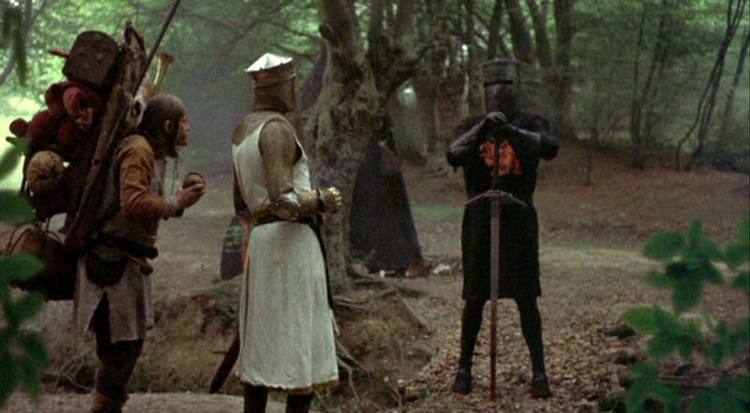It's Only a Flesh Wound
 King Arthur is in combat with The Black Knight. The Black Knight has four limbs; two arms and two legs. Arthur chooses a limb to strike at randomly and has a 50% chance of cutting the limb off.
King Arthur is in combat with The Black Knight. The Black Knight has four limbs; two arms and two legs. Arthur chooses a limb to strike at randomly and has a 50% chance of cutting the limb off.
The Black Knight will only be stopped when all of his limbs have been removed.
What is Arthur's probability of victory in 10 strikes? (Round your answer to the tenths place.)

If you're unfamiliar with this classic scene, it can be seen here .
Details and Assumptions
- The loss of more limbs of The Black Knight does not increase King Arthur's chance of cutting the remaining limbs off.
The answer is 0.8.
This section requires Javascript.
You are seeing this because something didn't load right. We suggest you, (a) try
refreshing the page, (b) enabling javascript if it is disabled on your browser and,
finally, (c)
loading the
non-javascript version of this page
. We're sorry about the hassle.
Arthur can lose if he only hits 1, 2 or 3 times out of the 10 strikes. He can hit once in ( 1 1 0 ) = 1 0 ways, twice in ( 2 1 0 ) = 4 5 ways, or three times in ( 3 1 0 ) = 1 2 0 ways. In total, this is 175 ways Arthur can lose out of the 1024 total possibilities. 1 0 2 4 1 0 2 4 − 1 7 5 ≈ 0 . 8 2 9 , which gives us our answer to the nearest tenth as 0 . 8